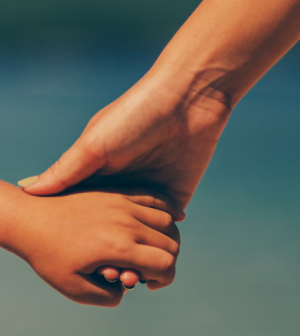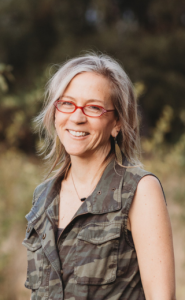- Finding Unshakable Power in a World That Wants to Pull Us ApartPosted 3 months ago
- What could a Donald Trump presidency mean for abortion rights?Posted 3 months ago
- Financial Empowerment: The Game-Changer for Women in Relationships and BeyondPosted 5 months ago
- Mental Health and Wellbeing Tips During and After PregnancyPosted 5 months ago
- Fall Renewal: Step outside your Comfort Zone & Experience Vibrant ChangePosted 5 months ago
- Women Entrepreneurs Need Support SystemsPosted 5 months ago
Mothering in a Fractured Time

By Tami Lynn Kent
There are so many ways to mother a child. If we still lived tribally, bountiful mothering skills from across the generations would be shared collectively — an assemblage of knowledge and wisdom from which an approach appropriate to each child could easily be gathered. Instead, the typical mother today must strive alone to piece together the knowledge that will best serve her children.
We’re raising children in a fractured time. Our young people face climate change and an array of emerging public health threats. Our children will have to endure relationship fractures, addictions, body image issues, trauma, and personal obstacles. Witnessing and experiencing suffering is embedded in the heart-expanding work of mothering.
As an elder mother, I assure you that you’re not alone in the moments when your heart is heavy. When you ask for and invite support, help will arrive in the form of friends, neighbors, and relatives, as renewed strength and courage, or even as something out of the blue. Some of the most difficult aspects of mothering can yield the greatest growth, like the pressure required to create a diamond. The alchemic process is intense, though.
Mothering in these times is a direct encounter with the experience of a fractured tribe. We’re trying to care for a child, or children, without sufficient collective structure or support. In an ideal world, we would be held and our children would later move into the broader container of community. To mark and process each stage of their development and life, they would communally experience ceremonies, initiations, celebrations, and rituals. Supported collectively in this way, children would find independence but still belong to a larger collective in a meaningful way.
Instead, as a healer, mother, and activist in the field of feminine repair, what I see everywhere are the fractures in these communal processes and containers. What is lineage or belonging in a fractured time? What do we inherit or pass along? Where are the contained spaces beyond our embrace in which our children will be recognized?
Even as mothers work hard to repair these fractures, they’re not always fully aware of why their mothering tasks feel so daunting. Through my profession, I’ve been afforded a unique perspective into the lives of many mothers. While my clients come from differing family, cultural, and racial backgrounds, I’ve seen that no matter the shape of our mothering, we’re all struggling to foster both belonging and independence in our growing children. Our kids need a whole community, a collection of people who bring diverse perspectives and skills to do the hard task of raising children. Yet this is mostly not happening.
Initially, I was delighted to share the beauty of the world with my children, but I didn’t anticipate that the world would sometimes break their hearts. I learned to make medicine from the challenges and the pain, just as mothers and grandmothers have always done. At times, though, I could offer only my presence, or my children had to learn to make their own medicine.
Over the years, we’ve worked together as a family through conflicts, traumas, the effects of pandemic isolation, and more, building relationships that are still evolving through steadfast presence and real, unconditional love. The process of mothering tempers and changes you through this daily love, which is a type of communal repair. Still, the communal integration process for young adults is unsteady, leaving mothers burdened with more than their share of this repair. At least in relaying our experiences, we can learn from and support one another as mothers.
I remember talking with a friend about one of her four grown sons, whom she almost lost to addiction. She shared with me the moment that she let him go. They had met to have lunch together, but all he wanted was money (presumably to purchase drugs). She handed him the cash and walked away, knowing there was nothing more she could do. She grieved like a mother who had lost a child and later learned that he had shed tears at the same moment.
As she told her story, I felt my friend’s pain, but I also noticed that she never closed her heart to her son. She established boundaries and had to let him find his own way, as one does with a loved one in the grip of addiction. But she still loved him through it all. This kind of unconditional, aching love is one that elder mothers know but sometimes keep to themselves. Stories about this kind of love help us to be strong in the face of our children’s personal growth and life lessons. My friend’s son eventually turned the corner and became an addiction counselor, but not all stories end with a breakthrough or resolution.
We need to hear these types of stories because they contain guidance for our own mothering journeys. In doing so, we participate in this communal mending and medicine-making project. Making medicine means building bridges, inviting healing, seeking perspective, creating solutions, embracing growth, calling in the mystery, making rituals, fostering community, facing personal limits and lineage wounds, and tending heartache and places of fracture. It also means remembering the source of energy medicine within your own body. Your wild mothering, in which you build the type of mothering that not only sustains your family but also feeds your mothering soul, matters greatly.
*******
Tami Lynn Kent is a women’s health physical therapist, a TEDx speaker, and the founder of Holistic Pelvic Care,TM where she utilizes her ability to read energetic patterns of the body. Kent maintains a private practice and an international training program in Portland, Oregon. She has authored three previous books. Her latest, Wild Mothering: Finding Power, Spirit, and Joy in Birth and a Creative Motherhood (Atria Books, May 7, 2024), is a newly updated edition of her classic, Mothering from Your Center. Learn more at www.wildfeminine.com.







